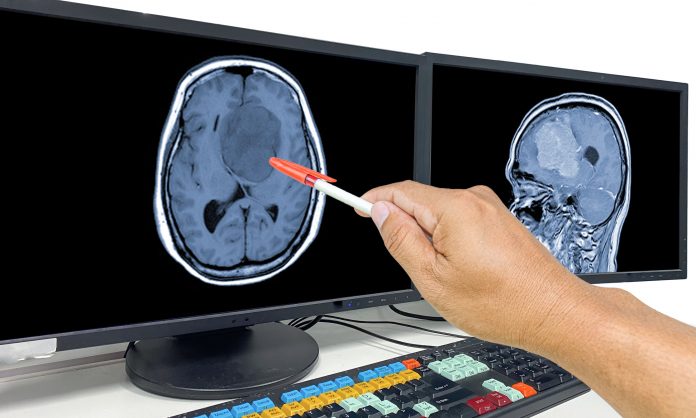
Mayo Clinic Comprehensive Cancer Center and Columbia University have been awarded a five-year, $10.6 million grant from the National Cancer Institute (NCI) to advance glioblastoma research. The grant will support a team of researchers to develop the Mathematical Oncology Systems Analysis Imaging Center (MOSAIC), which will combine biopsies collected at different regions of a patient’s tumor with magnetic resonance imagining (MRI) data.
The new research center will attempt to unravel some of the complexity of glioblastoma, a diverse cancer which exhibits significantly different tumor biology within different regions of a patient’s tumor. Combining molecular data from different tumor regions has the potential to aid MRI which is poor at differentiating regions of unfavorable tumor progression from those areas exhibiting favorable tumor response which is often mixed with immune response and inflammation. This can hinder the use of imaging by treating physicians to determine if a treatment is working for all, or only a part, of the tumor.
MOSAIC will seek to combine the molecular and MRI data to building mathematical and machine learning models to allow MRI to predict the tumor biology of regions that were not biopsied. The intent is to develop methods to create “virtual biopsies” via the new models that can unravel the biology of a patient’s tumor noninvasively.
“This grant is important as it will help us use MRI as a lens to more directly predict changes in the biology of each patient’s tumor during treatment when we normally have very limited access to tissue samples,” says the study’s co-principal investigator, Kristin Swanson, PhD, a mathematical oncologist at Mayo Clinic Comprehensive Cancer Center.
Mathematical oncology is a field of research that leverages mathematics, modeling, and simulation in cancer biology. It involves developing predictive mathematical models and utilizing data-driven machine learning approaches to identify patterns in cancer data previously unnoticed. The MOSAIC team, supported by the NCI grant, aims to utilize MRI as a tool for predicting changes in the biology of each patient’s tumor during treatment, overcoming the limitations of tissue sampling.
MOSAIC’s image-based mathematical models will use MRI to track aspects of tumor heterogeneity previously unattainable during the course of patient care. This is particularly important as the brain is a protected organ which limits tissue sampling during rare surgical interventions.
The new center will be housed at the Mayo Clinic’s Phoenix, Arizona campus with the participation of co-principal investigator Peter Canoll, MD, PhD, of Columbia University. MOSAIC is a broader collaboration of research health systems including Arizona State University, Columbia University, City of Hope, Inova, Mayo Clinic Rochester, MD Anderson Cancer Center, and Washington University.











